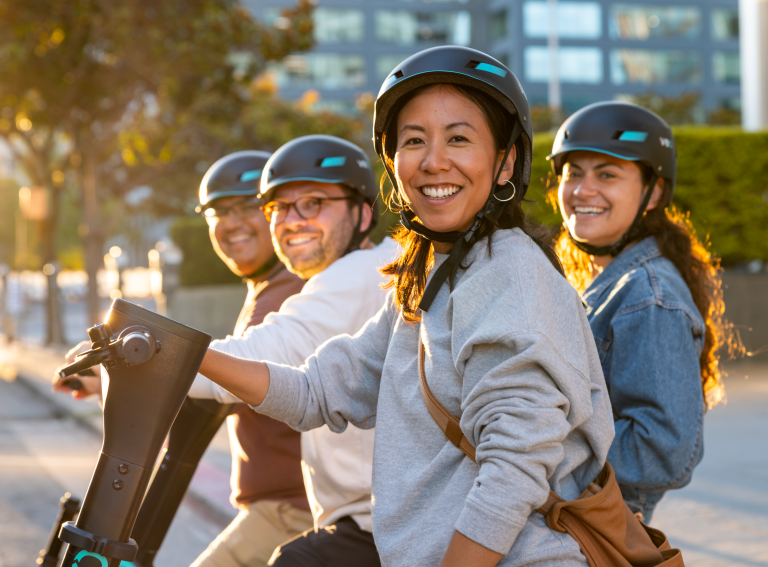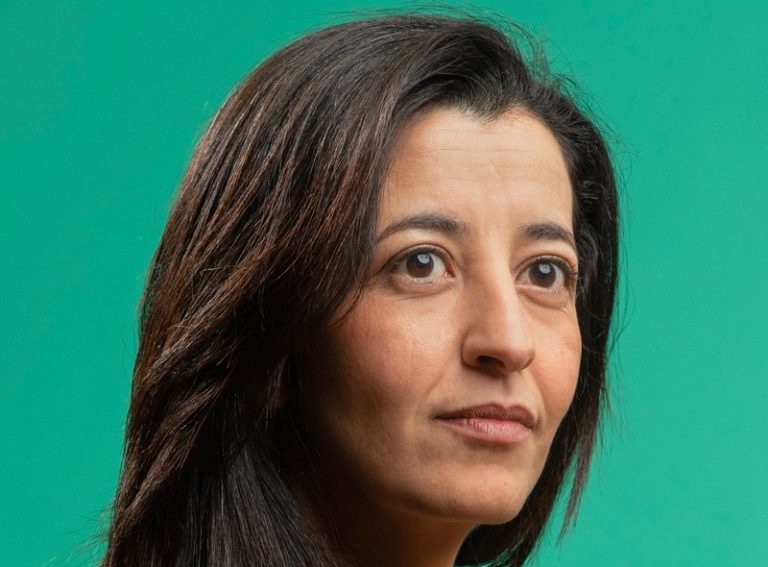Georgia Yexley spends much of her time working out of a vast warehouse in Deptford, South London, from where TIER manages its London fleet.
From this location, its shared e-scooters are recharged and serviced before being redistributed across the ten boroughs participating in the trial.
As TIER’s Head of Cities for the UK and Ireland, she is keen to be at the heart of the operation and maintain what she calls a “trial mindset” to ensure that the company “keeps learning each day by analysing the data and launching new research projects to drive the benefits of micromobility”.
She took up her position in April just ahead of the firm securing the tender to provide shared e-scooters for the London trial.
Seven months on and there are almost 3,500 e-scooters situated throughout the capital, with TIER’s fleet and journey numbers rising every month.
“I’ve been in micromobility for almost six years now and that’s afforded me the opportunity to work with hundreds of cities around the world,” she tells Zag Daily.
“That has brought a clear understanding of just how important it is to partner with cities really closely. My role with TIER as Head of Cities for the UK and Ireland means that I am responsible for that partnership, embedding the service in the public realm and wider transport mix as well as our rider experience and community impact.”
TIER Mobility is the largest shared e-scooter operator in Europe and was one of three chosen for the London trial earlier this summer.
Founded in Germany, the firm now has a presence across approximately 160 towns and cities, with London one of an impressive 16 capital cities in which it operates.
While the micromobility space is one defined by fierce competition between operators, there is also a sense of commonality in terms of purpose.
The team at TIER work closely with fellow London providers Lime and Dott on a daily basis in order to ensure the trial runs smoothly, while the firms all share the goal of shifting the UK towards a more sustainable transport ecosystem.
“TIER’s slogan is ‘Change Mobility for Good’ – and we operate from that ethos whenever we act,” she said.
“We need to make sure, for example, that we grow parking density in a way that both supports financially sustainable services, but also considers, consults and provides benefits for local people. We want to ensure our service is supporting the mobility needs of people who are currently underserved or unable to access public transport. Making people from all backgrounds and socio-demographic groups have the option to travel sustainably.”
Late last month, TIER secured $200 million in Series D funding, taking the organisation’s value to $2 billion.
The firm plans on using this funding to expand its international coverage through the development of its multimodal fleets and the continued rollout of the TIER Energy Network, a community-based battery-swapping scheme that helps riders access the service free and reduce its operations team on-street footprint.
Local businesses, libraries, and community centres can host TIER Energy Network battery PowerBoxes, with the latest data from Norway showing a rise in footfall for the retailers that take part in the scheme.
“We have been focused on financial sustainability from the outset,” Yexley explained.
“This latest fundraise includes some of our previous investors, as well as some new ones, which really does validate the business model that TIER has built. We really focus our efforts on solutions that maximise value for cities, whether that be parking compliance, safety, or sustainability. TIER has been climate neutral since January 2020, but continues to innovate, whether that be through looking at how we recycle/reuse our batteries and vehicles, or the development of the TIER Energy Network.”
While e-scooters have been legalised in much of Europe, the UK is one of a few exceptions, with the current trials designed to inform future policy.
Having started in the summer of 2020, the end date was recently extended until March 2022, with the London trial likely to go on even longer than that.
The trials across the UK have been heavily regulated and Yexley explained that for TIER, compliance with the Department for Transport and Transport for London has been central.
“We had to ensure that we’re compliant from day one so that we could effectively build strong partnerships with the boroughs and develop our service,” she said.
“We have an exceptionally well-resourced and knowledgeable team, with four City Managers in London and a Police and Safety Liaison Officer who has a background of 18 years in the police previously. This helps us ensure that we always have the right number of e-scooters on the street, with all of them being prime quality and ready to be ridden safely.
“TIER has also focused on our engagement being on point, through demonstrations for the boroughs, key stakeholders and local advocacy and community groups. We have also had plenty of consultation with the TIER Safety Board.
While the future of shared micromobility in the UK is not yet set in stone, TIER is keen to become an established force as a multimodal operator.
“We are hiring, and we are growing at a serious pace,” Yexley said.
“TIER has big ambitions for the UK, and we are multimodal already. We will continue to grow our e-bike presence and our partnerships with cities across the UK and Ireland. So, there is a lot of excitement and opportunity ahead of us.”





